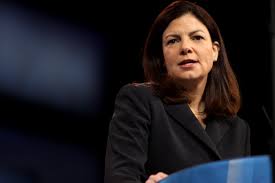Year after year, OpenSecrets.org data shows that Congress is a millionaire’s club. That’s true even though members make “only” $174,000 a year, largely because many of them are wealthy before they’re elected. In fact, salary isn’t the top source of income for a large group of these lawmakers: Their pay is outstripped by the interest and capital gains they collect on their bank accounts, mutual funds and other financial holdings.
In other words, they’re not earning most of their money; their money is making money.
The minimum unearned income for New Hampshire’s Congressional Delegation is listed below with and without rents.
U.S. Rep. Frank Guinta, R-NH $12.00 including rent $15,013
U.S. Rep. Ann Kuster, D-NH $0 $0
U.S. Sen. Kelly Ayotte, R-NH $1,469,498 $1,474,499
U.S. Sen. Jeanne Shaheen, D-NH $38,202 $129,208
The money made by the money of at least 160 members of the 114th Congress — more than one-third — was greater than the total income of the median American household ($53,657). At least 174 made more money from their money than the median household in their own district made overall.
And 68 made more money this way than by drawing a congressional paycheck. This “unearned income” is most commonly collected as capital gains — cash generated when an asset (like an investment or real estate) is sold for more than the purchase price.
The average American hasn’t had much experience with that. In 2014, the money made by the money of at least 160 members of the 114th Congress — more than one-third — was greater than the total income of the median American household ($53,657). At least 174 made more money from their money than the median household in their own district made overall. And 68 made more money this way than by drawing a congressional paycheck. (We excluded income from property rentals in our analysis.)
This “unearned income” is most commonly collected as capital gains — cash generated when an asset (like an investment or real estate) is sold for more than the purchase price. Rep. Darrell Issa (R-Calif.), who made a fortune in the car alarm business and regularly tops our list of the wealthiest members of Congress, had the highest capital gains income in 2014, accounting for most of his more than $2 million in unearned income ($2.6 million if rental income is factored in). Issa also earned interest on cash assets and received dividends from companies he owns.
Sen. Dianne Feinstein (D-Calif.) led the 40 members of the Senate whose unearned income came to more than the median U.S. household income; hers totaled at least $8.2 million, most of which was due to capital gains on her husband’s assets. In the House, 120, or 28 percent, were in the same category. Slightly more than half of the 120 are Republicans.
*Excluding rental income
| Member | Unearned Income |
|---|---|
| Rep. Darrell Issa (R-Calif.) | $20,382,937 |
| Rep. Jared Polis (D-Colo.) | $20,110,001 |
| Rep. Michael McCaul (R-Texas) | $9,944,058 |
| Sen. Dianne Feinstein (D-Calif.) | $8,178,704 |
| Rep. John K Delaney (D-Md.) | $6,893,452 |
| Rep. Dave Trott (R-Mich.) | $5,891,039 |
| Sen. Mark Warner (D-Va.) | $5,772,742 |
| Sen. Richard Blumenthal (D-Conn.) | $3,973,948 |
| Rep. Vernon Buchanan (R-Fla.) | $3,203,708 |
| Sen. John McCain (R-Ariz.) | $1,536,379 |
Fourteen senators reported no unearned income in 2014, including presidential candidates Marco Rubio (R-Fla.) and Bernie Sanders (I-Vt.). Fifty-one House members were in the same boat.
Members representing the wealthiest areas didn’t necessarily take in the most unearned income. Rep. Barbara Comstock (R) represents the richest congressional district in the country – Virginia’s 10th – but she took in just $405 in unearned income. The median household income in her district, which encompasses affluent Washington D.C. suburbs, is $115,154. Similarly, representatives for the poorest districts were not necessarily themselves the worst off, financially speaking.
While the least well-off district in the country – New York’s 15th, encompassing the most destitute areas of the Bronx – is represented by Rep. Jose Serrano (D), who made between $1 and $200 on top of his congressional paycheck, the second poorest is represented by Rep. Hal Rogers (R-Ky.). Rogers reaped at least $175,742 in unearned income in 2014, nearly six times the median household income in his rural Appalachian district. Approximately $75,000 of that came from capital gains on stock he held in companies like Goldman Sachs, BP, and Facebook. He also collected at least $100,001 in dividends from holdings in Citizens Bancshares.
Interested in how much your own member of Congress made from his or her money? Explore the data here. All numbers are minimums, because congressional financial disclosure forms require lawmakers to report their assets and liabilities in ranges rather than exact amounts. The actual totals may be larger.





